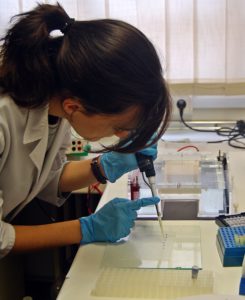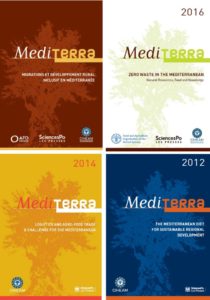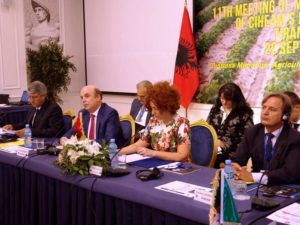Forest ecosystems: a strong call from stakeholders for enhanced cooperation in the Mediterranean
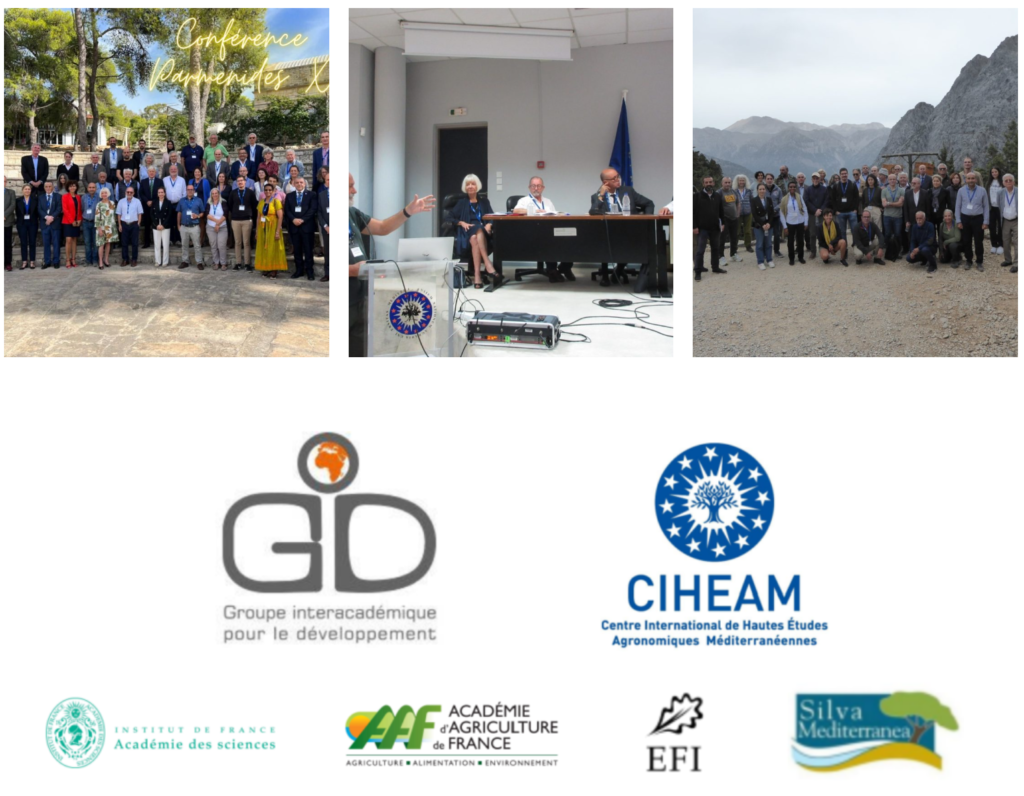
The Groupe Interacadémique pour le Développement (GID) and the International Centre for Advanced Mediterranean Agronomic Studies (CIHEAM), with the support of the Académie des Sciences de France, the Académie d'Agriculture de France, the European Forest Institute (EFI) and the technical support of the Food and Agriculture Organization of the United Nations (FAO), organised the 10th PARMENIDES Conference at the CIHEAM Institute in Chania (Greece) from 24 to 26 October 2023, entitled “Trees and Forests in the Face of Global Change: Mediterranean Countries at the Forefront”.
Over fifty representatives of intergovernmental organisations, academies, universities, research centres, ministries and civil society called for a strong strengthening of cooperation. The participants hope to mobilise Mediterranean decision-makers in this direction.
In a Mediterranean region marked by climate change and described as a mosaic in its environmental, socio-demographic and economic dimensions, the speakers discussed three major issues.
- How can Mediterranean forest and tree ecosystems and their evolutionary potential be strengthened?
- How can their management be optimised in order to provide a wide range of goods and services, while building on synergies between sectors of activity (forestry, agriculture, grazing, tourism, culture, etc.) and with civil society (with a specific focus on young people)?
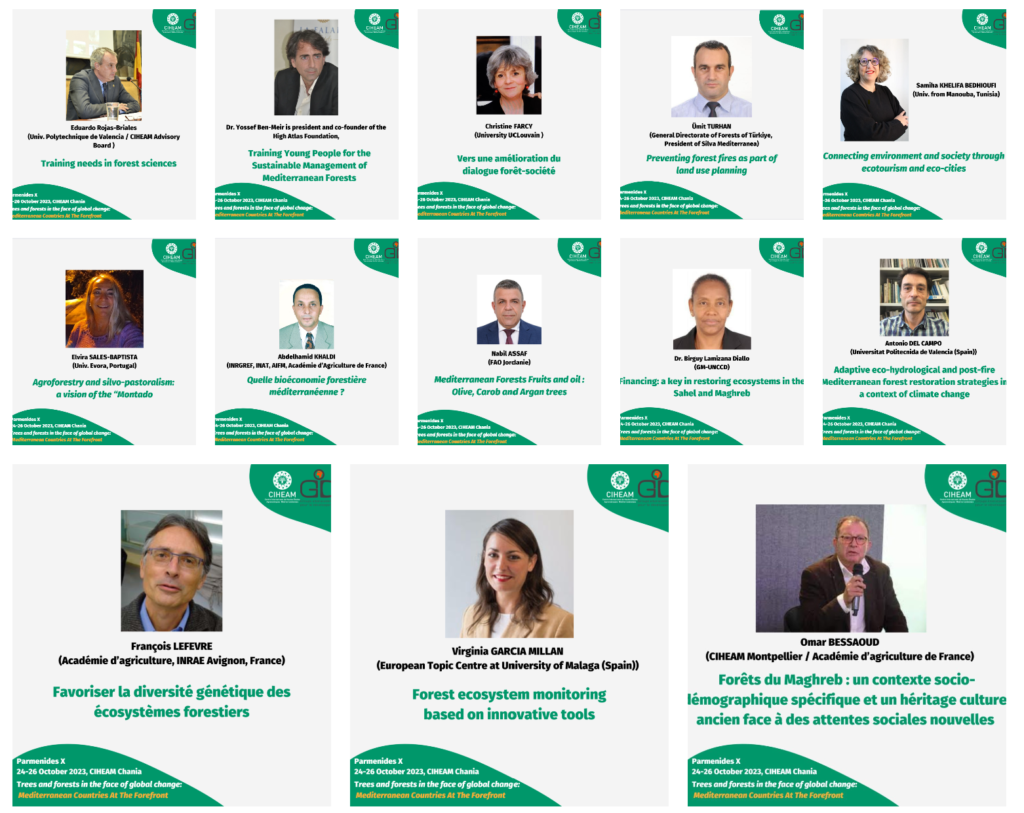
While the challenges faced by the Mediterranean countries in securing the future of their woodlands are considerable (degradation, desertification, wildfires, an underestimated bio-economic approach, inadequate involvement of local stakeholders and communities, etc.), there is no shortage of developments underway in favour of greater sustainability, durability and inclusiveness. Far from meaning a futile quest for identical conservation or, conversely, overly radical transformations, sustainable forest management is the result of reasoned adaptation efforts that include the growing demand for wood for construction and heating as part of an approach to mitigating greenhouse gas emissions.
In a semi-arid zone where the effects of climate change will be particularly marked, these efforts will require substantial financial resources and will have to be defined and implemented in consultation with the populations concerned, through their specific territorial organisations. In addition, in order to be accepted by the general public, these changes must be the subject of targeted communication aimed at informing society of their necessity.
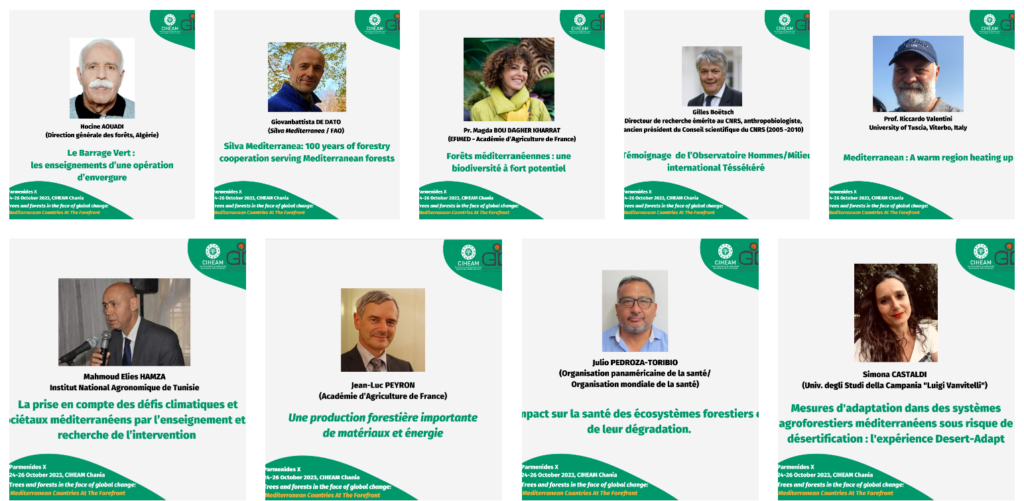
The discussions showed that the physical, climatic and socio-economic constraints specific to Mediterranean areas stimulate the search for innovative solutions to the problems that arise, with the management of forest cover being specifically involved in the issues of regulating the water cycle, combating soil erosion and preventing wildfires.
These solutions require a multifunctional, integrated vision of the area, based on water-saving management. They are based on a combination of proactive public policies and local initiatives founded on a wealth of experience and a capacity to adapt to the future context. They are the result of close, ongoing dialogue between land managers, rural populations and civil society.
Despite the crises affecting the Mediterranean, they justify enhanced cooperation, not only at political and institutional levels, but also in terms of research, technological and socio-economic innovation, and training - cooperation encouraged by the establishment of a common space for dialogue and joint projects.
Under these conditions, they will foreshadow the answers to the questions that have arisen and will arise beyond the Mediterranean rim, and wherever the climatic and social challenges appear to be increasingly significant.
These discussions and the final recommendations will be shared within the networks of the organisations present and during events such as the Conferences of the Parties to the United Nations Conventions on Climate Change, Biodiversity and Combating Desertification. They will also feed future discussions in regional forums for dialogue and decision-making, especially the Mediterranean Commission on Sustainable Development (MCSD).






